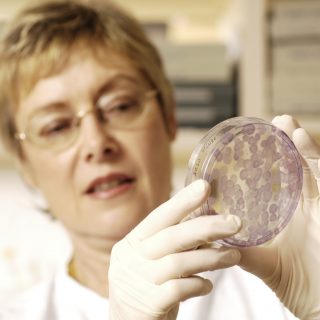38 related news articles for Endometrial Stem Cell Biology
-
Endometriosis 2025 – all your questions answered
Endometriosis researchers, Professor Caroline Gargett and Dr Fiona Cousins answer your most frequently asked questions relating to this chronic inflammatory disease effecting one-in-seven menstruating people. … Read more
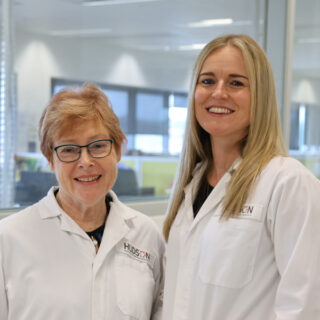
-
Next-generation degradable 3D meshes to repair POP
A debilitating condition affecting one in four women is desperately crying out for a solution, and the next generation of treatments to repair the damage of pelvic organ prolapse (POP) has just come a big step closer.… Read more
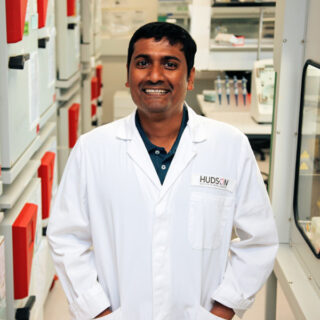
-
The hidden condition that we have to talk about
Faced with a condition that’s rarely spoken about, despite affecting up to 40 percent of all women, Sally decided things had to change, so she volunteered to be our POP advocate – sharing her story and her suffering to help avoid others going through the same thing.… Read more
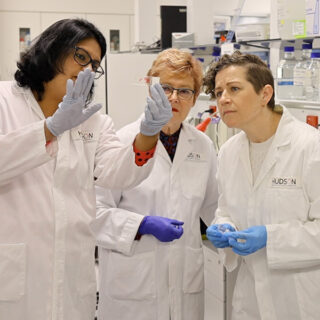
-
Endometriosis advocates: two women, one goal
Like most endometriosis sufferers, Maddy Forster went from knowing very little about the disease to being something of an expert, but it was a process that took years and included many wrong turns along the way.… Read more
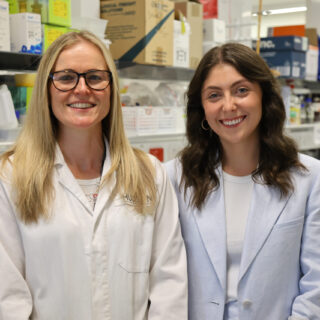
-
Endometriosis diagnosis could be in the blood
Professor Caroline Gargett has spent decades working to address the two major issues presented by endometriosis: earlier diagnosis and better treatment.… Read more
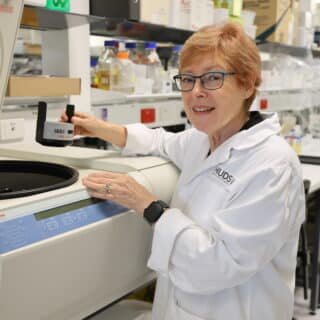
-
Endometriosis research gets a double funding boost
Hudson Institute post-doctoral researcher Dr Shanti Gurung and her team are celebrating a double boost of funding for their work on endometriosis.… Read more

-
Pelvic organ prolapse cure closer
New ways to prevent and cure pelvic organ prolapse (POP) are a big step closer, thanks to major funding for pioneering research at Hudson Institute.… Read more
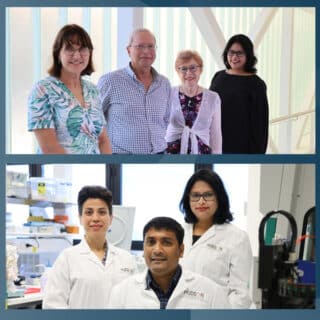
-
Young women launch into science
In a week of opening eyes and broadening minds, a dozen young women have fed their passion for science, thanks to Hudson Institue mentors.… Read more
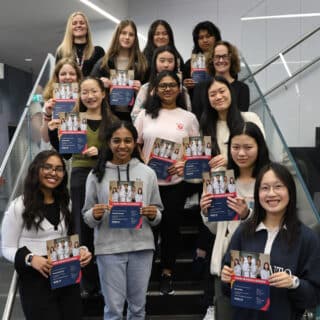
-
Hudson Institute’s 2023 Emerging Leaders
Six of the best early career researchers have been chosen to take part in the Hudson Institute 2023 Emerging Leaders Program. … Read more

-
Endometriosis research in focus on the airwaves
Hudson Institute’s endometriosis research was in focus on Melbourne radio over the weekend, as long-running science program Einstein A-Go-Go devoted its whole hour to the disease.… Read more
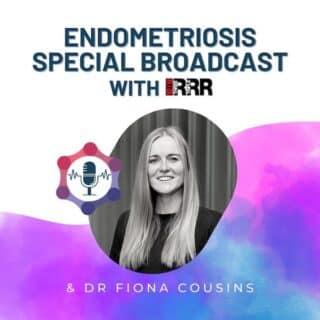
-
Engineering a better POP treatment option
People living with pelvic organ prolapse (POP) have had a limited number of treatments available to them over the years, so a new POP treatment option can be a cause for excitement.… Read more

-
Big ideas attract big funding
Hudson Institute researchers have featured prominently among the latest recipients of NHMRC Ideas Grants.… Read more
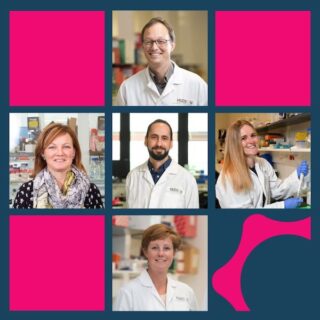
-
High school scientists inspired by introduction to the lab
A squadron of high school scientists has spent a week at Hudson Institute exploring a future in STEM. Year 10 students from secondary schools throughout Melbourne’s south-east spent a week at the Clayton campus, each matched with a female mentor, being shown the ropes of a career in medical research.… Read more
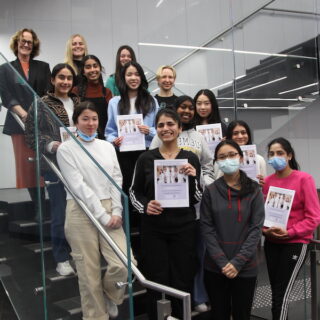
-
Helping women with endometriosis
Some scientific discoveries have the power to prevent years of pain and suffering. Professor Caroline Gargett and her team are within reach of making that dream a reality for millions of women.… Read more
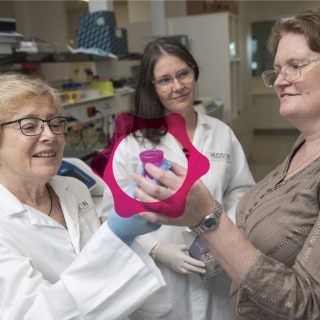
-
Professor Caroline Gargett: women’s health
Whether it’s working to help women living with the crippling effects of pelvic organ prolapse (POP), end the pain of endometriosis, or even developing new methods of vaginal reconstruction, Professor Gargett is at the forefront.… Read more
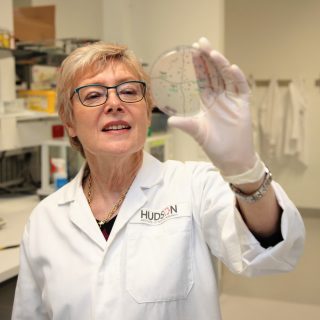
-
Million-dollar prize for team developing new vaginal reconstruction biomaterials
An international team developing new technologies for vaginal reconstruction has been awarded a prestigious million-dollar prize.… Read more
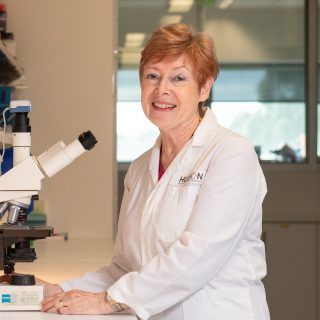
-
Jess’s Story | Hidden pain of POP
Six months after the birth of her third child, Jess*, 35, felt something wasn’t right. As she was walking 200 metres to the beach one day with her baby in a carrier, she felt an uncomfortable dragging sensation in her pelvis and had to sit down.… Read more
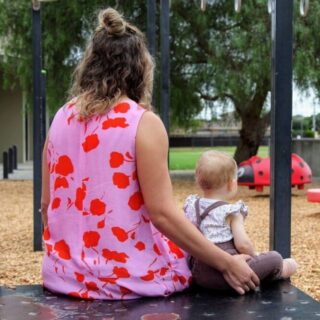
-
Researchers closer to finding the cause of endometriosis
condition that affects about one in 10 women of reproductive age and more than 730,000 in Australia, after making a world-first discovery of the role endometrial stem/progenitor cells in the disease.… Read more
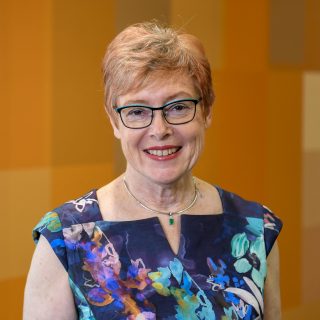
-
Nicole’s story: from undiagnosed pain to endometriosis
It took 20 years for Nicole Fernley to be diagnosed with endometriosis, a condition which affects one in nine women. This is her story, in her words.… Read more
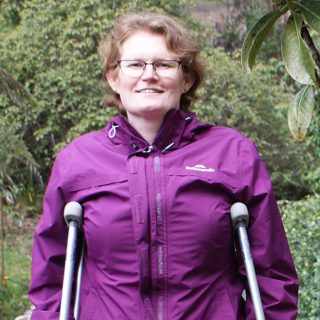
-
Pelvic organ prolapse treatment hurdle overcome
Pelvic organ prolapse (POP) can be a debilitating condition, predominantly caused by the impact of childbirth. It affects an estimated one in four women, and one in two women over 50.… Read more
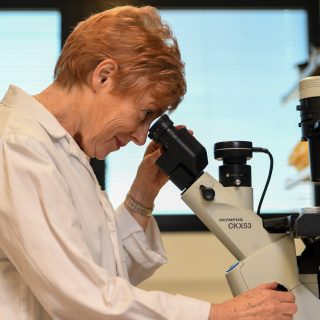
-
Bridget’s endometriosis story – diagnosis provides answers
About 176 million women worldwide have endometriosis. Professor Caroline Gargett has long known the debilitating impacts of this disease on women—and has dedicated a significant portion of her career to investigating its cause.… Read more

-
Boosting embryo implantation success
During infertility treatment, the failure of an embryo to implant in the uterus lining is still a major hurdle to a successful pregnancy for many women.… Read more
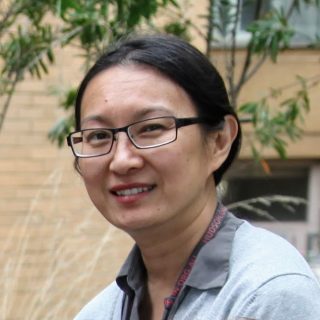
-
Pelvic organ prolapse treatment closer
A revolutionary technology to treat pelvic organ prolapse is one step closer after the latest results from a Hudson Institute study.… Read more
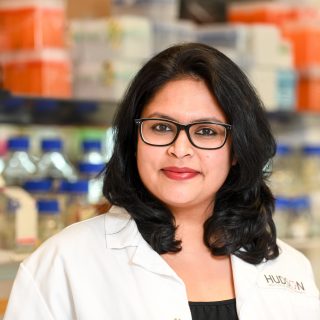
-
Congratulations to our CASS Foundation grant awardees
Five Hudson Institute researchers have been awarded one-year Medicine/Science grants totalling nearly $300,000 by The CASS Foundation, to advance their research projects into mitochondrially-driven cancers, ovarian cancer, Parkinson’s disease, primary aldosteronism and endometriosis in 2020.… Read more

-
Uncovering hidden challenges in treating pelvic organ prolapse
Hudson Institute scientists have demonstrated a two-step stem cell-based bioengineering approach in a pre-clinical model for the treatment of pelvic organ prolapse (POP).… Read more
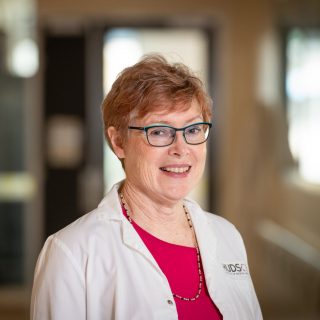
-
US$2.07 million awarded to tackle endometriosis
Professor Caroline Gargett and collaborators at the University of Queensland and Monash IVF have been awarded a three-year US$2.07 million (AU$3.05 million) grant to determine the cause of endometriosis and the physiological processes associated with the disease.… Read more
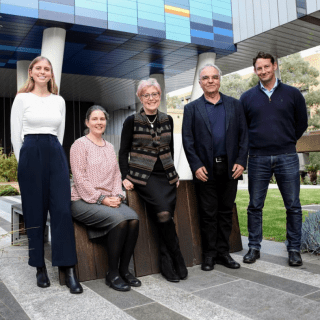
-
NHMRC Investigator Grant success
Hudson Institute is delighted to announce the success of our researchers in the new NHMRC Investigator Grant round.… Read more
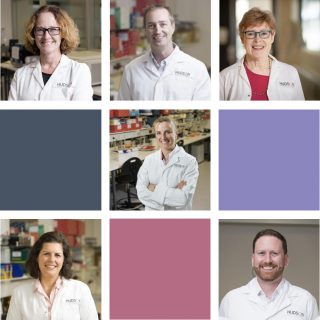
-
Research uncovers clues to cause of endometriosis
Scientists are one step closer to understanding the cause of the debilitating condition endometriosis, following the completion of a study into cells found in the lining of the womb called the endometrium. In the study, published in the journal Human Reproduction, Professor Caroline Gargett and her team sought to determine whether regenerative cells called endometrial… Read more
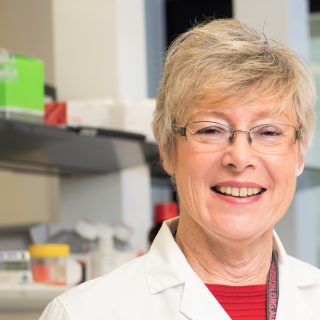
-
Cells finding may boost POP treatment
A discovery that provides deeper understanding about inflammation in the endometrium could bring scientists closer to improving pelvic organ prolapse (POP) treatment for women, a condition resulting from injury during childbirth. Our study, published in the January edition of Reproduction, shows that mesenchymal stem cells (MSC) in the endometrium have the capacity to dampen inflammation.… Read more
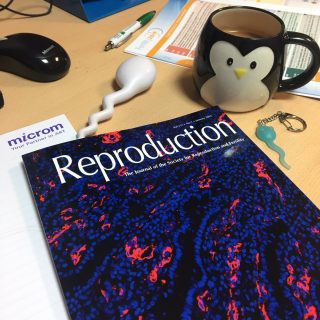
-
NHMRC Project Grant success
Hudson Institute has had excellent success in the recent NHMRC and ARC Grant rounds.… Read more
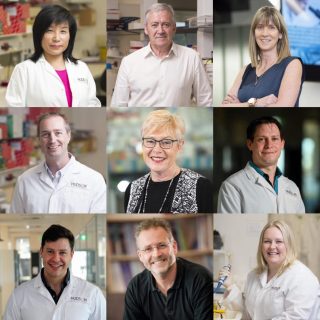
-
Researchers awarded Ferring Innovation Grants
Two Hudson Institute researchers have been awarded 2018-19 Ferring Innovation Grants. Dr Fiona Cousins and Dr Tracey Edgell were named among eight international researchers, with this year’s program focused on reproductive medicine, women’s health and more. The grants attracted a record number of applications, with those selected considered to be at the cutting edge of… Read more
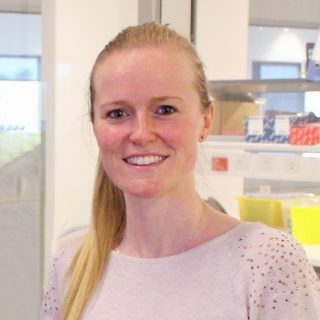
-
Bioengineering: the new approach for treating pelvic organ prolapse
Hudson Institute of Medical Research scientists are combining stem cells from the lining of a woman’s own uterus with nanobiomaterials (biodegradable materials engineered on the nanoscale) in a world-first approach to develop safer, more effective treatments for pelvic organ prolapse.… Read more
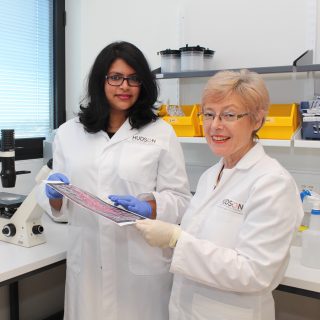
-
Stem cell breakthrough advances endometriosis research
Research into women’s health conditions like endometriosis and adenomyosis will now be accelerated, thanks to the world-first discovery of an identifying marker for a type of adult stem cell in the lining of a woman’s womb, or uterus, by a team of Melbourne scientists. The breakthrough is significant for the study of endometriosis, a condition… Read more
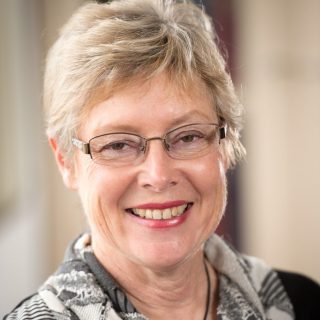
-
Progressing solutions for endometriosis
Approximately one in 10 Australian women and many teenage girls live with a ‘silent’ yet potentially debilitating condition, endometriosis. Endometriosis can affect a woman’s physical and mental health, impacting on their ability to work and study, as well as disrupting family life and personal relationships. Head of the Endometrial Stem Cell Biology laboratory at Hudson… Read more

-
Caroline Gargett receives academic promotion to Professor
Renowned stem cell scientist Caroline Gargett has received an academic promotion to Professor from Monash University. Prof Gargett is an NHMRC Senior Research Fellow and heads the Endometrial Stem Cell Biology laboratory in The Ritchie Centre at Hudson Institute. Prof Gargett says she is honoured to receive a promotion for her work which investigates underlying… Read more

-
Shining the light on ‘silent’ women’s health conditions
Women’s health and endometriosis experts from across Australia and the world are gathering in Melbourne in October to share cutting-edge research and bring a ‘silent’ women’s health condition to the fore. Hudson Institute of Medical Research and its women’s and baby health hub, The Ritchie Centre, are hosting a free public forum ‘Endometriosis – Moving… Read more

-
Collaborative study gives hope to women suffering in silence
New treatment for millions of women affected by a hidden condition, pelvic organ prolapse (POP), will be the focus of Dr Shayanti Mukherjee’s novel bioengineering project, thanks to a prestigious John Stocker Postdoctoral Fellowship.… Read more

-
Hudson Institute scientists lead charge for Melbourne’s stem cell meeting
Hudson Institute’s Associate Professor Caroline Gargett and Professor Alan Trounson have played a leading role in securing a prestigious scientific stem cell research meeting for Melbourne in 2018.… Read more
